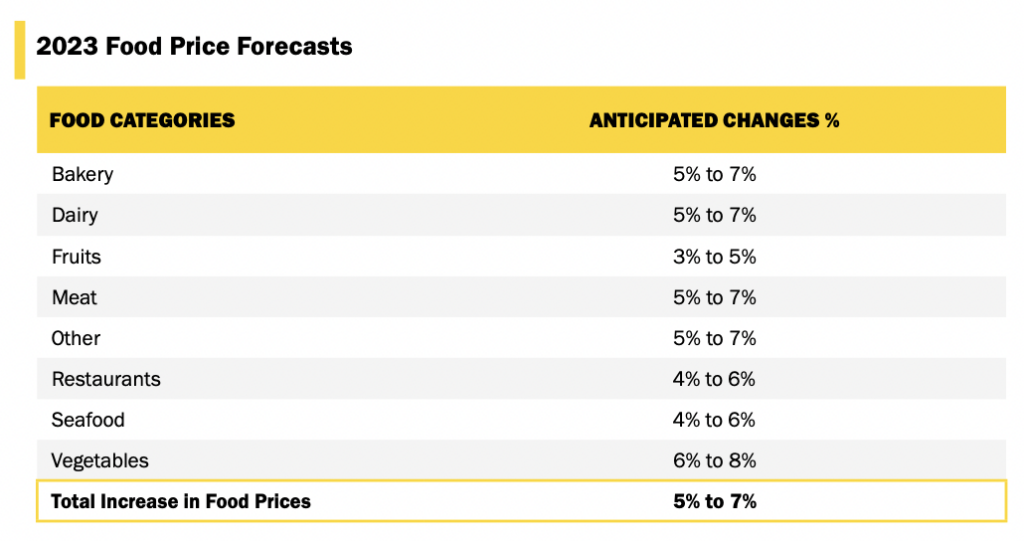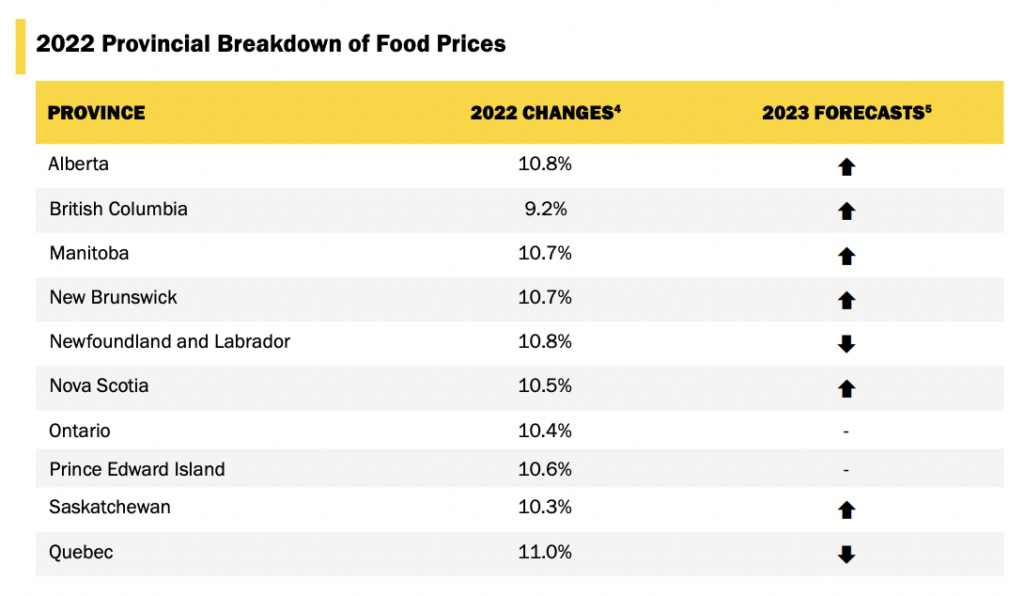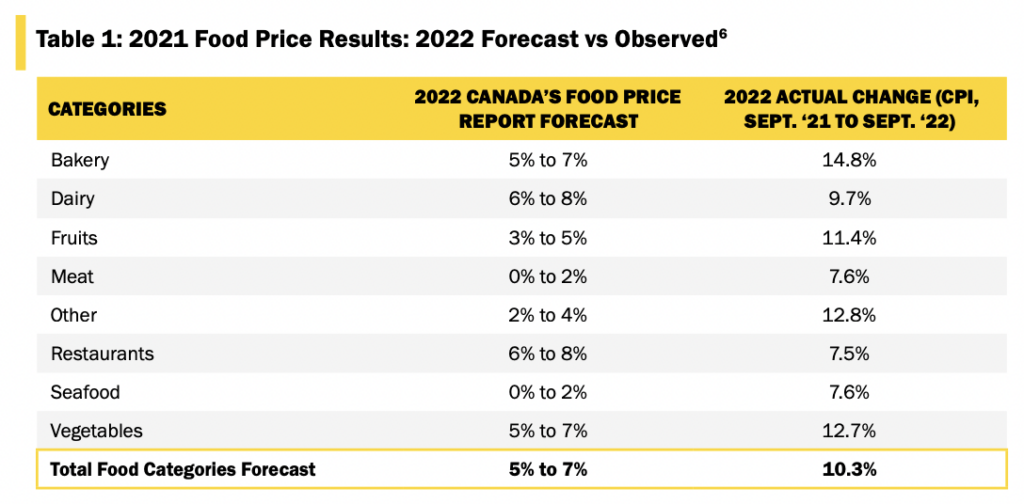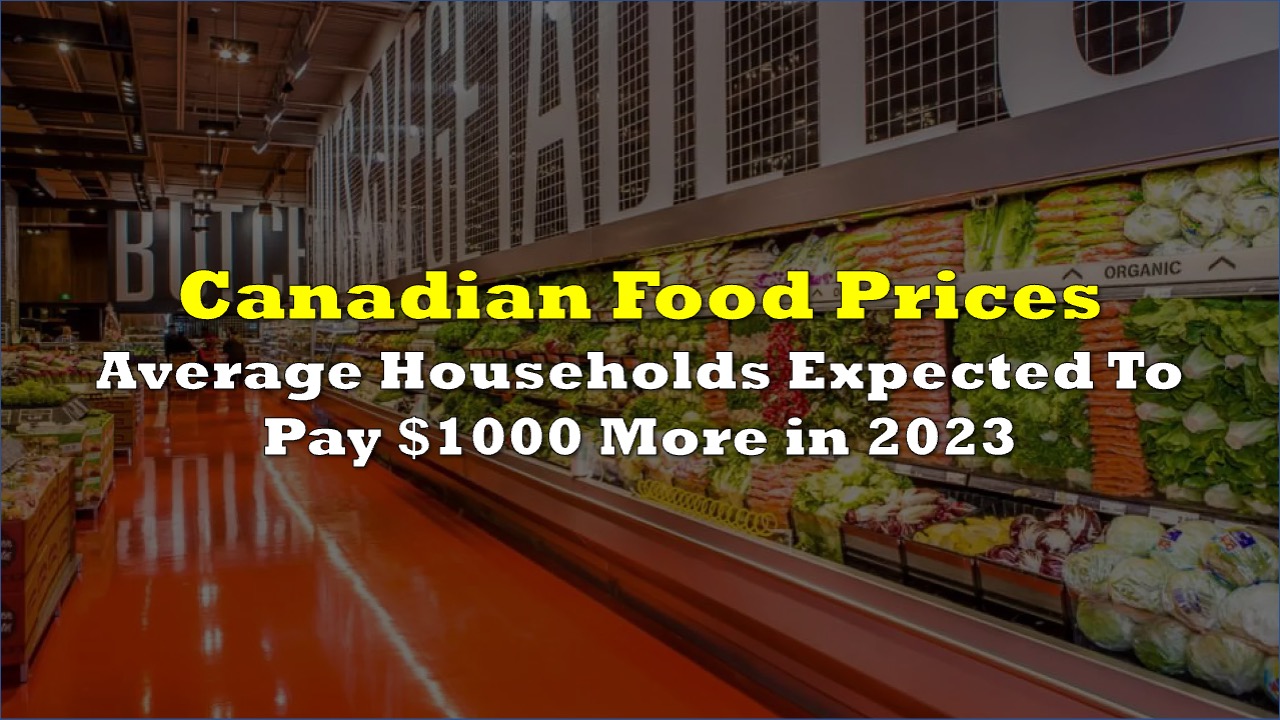Food inflation may be slowing down compared to last year’s pace but the average family of four is still expected to pay over $1,000 more this year than they did in 2023, according to a new study.
The 13th edition of Canada’s Food Price Report from researchers at Dalhousie University, the University of Guelph, the University of Saskatchewan, and the University of British Columbia predicts that food prices, on average, will go up by 5% to 7% this year.

The report says that food prices, particularly vegetables which are projected to become 6% to 8% more expensive, will continue to be affected by climate change as well as the high cost of transportation due to higher oil prices.
Among the provinces, Newfoundland and Labrador and Quebec, which saw an average increase of 10.8% and 11% in 2022, are expected to see a below-average increase in food prices. All other provinces, aside from Ontario and Prince Edward Island, are likely to see an above-average increase.

The projections are based on historical data, computed against a wide range of macroeconomic factors driving food prices, trends, and expectations for the food industry in the coming year.
This year’s projected increase, which would push average annual food expenses from $15,222.80 to $16,288.41, is modest compared to the actual increase seen from 2021 to 2022.

“At 7%, our forecast a year ago was considered by many to be alarmist, yet here we are with a food inflation rate above 10%,” the researchers wrote in the report. Last year’s price increases were largely pushed by a rise in transportation costs and supply chain disruptions. Extreme weather events brought about by climate change have also negatively impacted harvests around the world.

“Climate change, geopolitical conflicts, energy, material, inflation, currencies, trade deals, food retail and manufacturing figures, consumer debt and expenditures, and remaining effects of COVID-19 influence our forecast for 2023 food prices in Canada,” the report says. “Of note this year, geopolitical conflicts, energy costs, and input costs have played a role in the cost of food prices.”
Information for this briefing was found via Canada’s Food Report, and the sources and companies mentioned. The author has no securities or affiliations related to the organizations discussed. Not a recommendation to buy or sell. Always do additional research and consult a professional before purchasing a security. The author holds no licenses.









